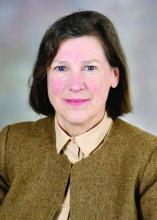Keeping up with refinements in old procedures and adopting new procedures throughout one’s surgical career has always been a challenge.
That challenge has grown as advancements in technology have become ever more disruptive, requiring the learning of radically different skills. Surgeons are highly motivated to learn new procedures, lest they become extinct like professional “dodo birds.” But doing so requires a considerable expenditure of time and money to attend courses and then a period of being proctored in the new procedure once it has been learned.
Institutions and medical device manufacturers increasingly are requiring proctoring of established surgeons who are adopting new procedures. New surgeon hires now are being required to be proctored for a specific time period or number of procedures. Although these policies are a good starting point in assuring baseline skill of the individual surgeon, they fall short of the ideal, which involves the pursuit of excellence or mastery rather than mere competence. When it comes to surgery, “okay” is not good enough – we must all aim for mastery.The acquisition of technical skill in surgery is well recognized as a primary responsibility of surgical residency training programs. Surgical meetings and surgical journals have recently given a lot of space to the question of whether training programs are imparting adequate surgical skill to their learners and whether new graduates have achieved surgical competence at graduation. Some highly cited articles, having surveyed surgical teachers, maintain that a significant percentage of the new graduates have not achieved the needed skills to practice independently.1,2 Many place the blame at the feet of the much-maligned restriction in the resident work week to 80 hours, a limitation imposed by the Accreditation Council of Graduate Medical Education in 2003.
The reasons for the perceived decline in competence are many, including an increase in the number and complexity of surgical procedures, as well as institutional expectations for increased involvement of attendings in procedures. Recommended solutions include lengthening training, encouraging increased and earlier specialization, and proctoring by senior surgeons in the first year of a surgeon’s practice. Less frequently mentioned is the fact that, although the work hours are shorter and the surgery more complex, we have not compensated for these factors by appreciably changing the methods used to teach surgical technique. In many programs, faculty are performing an increasing proportion of procedures: doing more and teaching less.
Mandated surgical skills labs may be helpful to teach a basic level of skill. Simulation can be helpful in imparting the ability to perform more complex procedures and quickly adapt to unexpected intraoperative findings or occurrences. Virtual reality simulators are available, but they’re very expensive and often beyond the budgets of most residency programs. While simulation can help, it is not the whole solution to learning surgical skills.
It is now long past due for surgical training programs to rethink the process of teaching surgical skill in a more deliberate way to residents. One way to accomplish this might be through utilizing “master teachers” or “coaches” who are trained specifically to impart not only skill in performing a given procedure but also an understanding of how to critically assess one’s own performance in practice and learn how to improve that performance through self-reflection and self-assessment. Some very thoughtful and compelling studies have described how coaching might aid performance improvement of both residents and of surgeons already in practice.3,4,5

